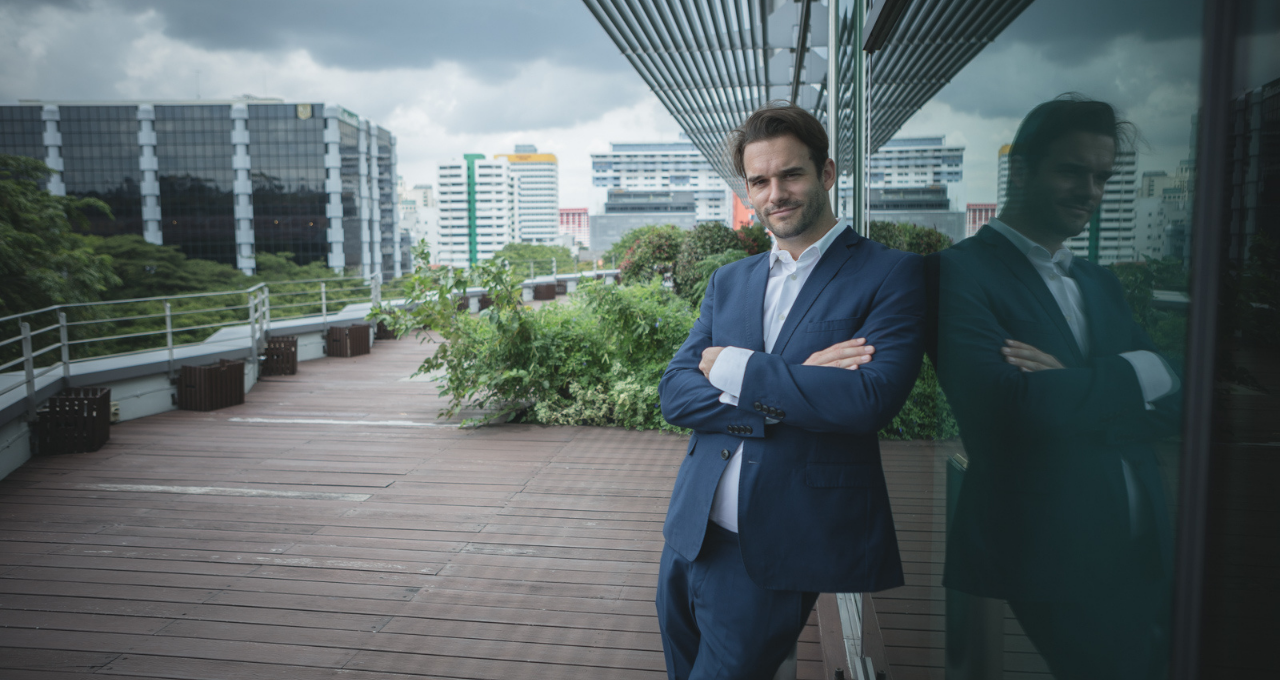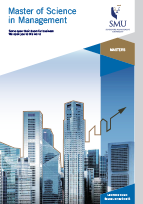
One of the takeaways from the COVID-19 pandemic lies in the way it has thoroughly upended so many norms. From workplace habits to expectations of accountability, we have completely recalibrated our abilities to adapt to new paradigms. How can we use this newly acquired agility to approach sustainability, the existential challenge of our times?
Innovation is a key driver of sustainability solutions - especially in an increasingly competitive corporate world that is lean on resources yet demanding of results. Simon Schillebeeckx, Assistant Professor of Strategic Management at Singapore Management University’s Lee Kong Chian School of Business, shares three new ways to think about sustainability that will have lasting benefits beyond the COVID-19 crisis.
1. Rethink the place you live
With working from home likely to be much more prevalent going forward, it’s a great opportunity to re-examine the traditional town-and-country divide. Cities have always been the sites of lucrative jobs and vibrant lifestyles, particularly by younger people. And cities are not necessarily environmentally unsustainable — their higher densities can often yield a lower energy footprint.
However, while urbanites may have been content with smaller living spaces and higher costs of living when they also had access to perks of city living such as sophisticated dining options and cultural attractions, the pandemic has changed this calculus.
Social distancing and other public health precautions continue to dampen the prospects of the food and beverage, nightlife and cultural sectors. At the same time, since remote working means that you can theoretically work anywhere, it doesn’t necessarily have to be a cramped and highly priced city apartment.
“Why would someone working for a global company here in Singapore not live in Bali or in Johor, where the cost of living is a fraction of what it is here?” asks Asst Prof Schillebeeckx. A move towards re-ruralification could help to create a more balanced distribution of human capital.
In rural areas, retaining and attracting young talent could help to arrest population decline and spur better livelihoods through innovation and entrepreneurship. In the cities, this inflection point could present opportunities to redefine what urbanisation means, through experiments with cooling systems that are less damaging for the planet, for instance.
2. Demand true accountability
The pandemic has created renewed attention on climate issues, “because people have been confronted with their own mortality”, says Asst Prof Schillebeeckx. It also helps that sustainability has become a much more high-profile cause in recent years.
However, it is not uncommon to find institutions touting sustainability initiatives as a form of virtue-signalling, such as through corporate social responsibility projects, while not integrating it into their corporate agenda in truly meaningful ways.
“Teams focused on sustainability in big companies are rarely truly empowered to act on sustainability,” he notes. “There are exceptions, of course, but they typically lack the budgets and authority to make decisions for the business. They are not really embedded in strategic processes. This seems to be particularly true in Asia.”
CEOs and institutional investors with strong personal interests in sustainability can help to change this balance of power. More rigorous reporting standards make an important difference too.
For instance, the Big Four accounting firms – Deloitte, PwC, EY, and KPMG – recently launched a reporting structure for ecological, social and governance (ESG) standards, and this first attempt at a homogenous framework is meant to motivate international businesses to embrace these standards from 2021, and “realign capitalism for the benefit of broader society".
“That’s a good step in the right direction,” says Asst Prof Schillebeeckx. “Reporting frameworks for sustainability should have clear ways to measure results. Companies should also set strong, ambitious goals, and there must be real accountability for these goals. If they are not met, there should be consequences, like a budget cut for the relevant department.”
3. Make sustainability viable
On a related note, making a strong business case for sustainability hasn’t always been easy, but it may be getting more feasible. For starters, there is growing evidence that purpose-driven companies have higher employee retention, so that’s one potential incentive for companies to embrace sustainability.
New paradigms for partnerships, funding and revenue streams are also emerging. Asst Prof Schillebeeckx is one of the founders of the non-profit Global Mangrove Trust, which works to protect mangrove forests, critical ecosystems for alleviating flooding that also absorb much more carbon than rainforests.
“Fundraising was particularly challenging for us. This, however, drove us to adopt a model of receiving donations in kind or grant-in-aid instead of money. This is how we started working with DBS,” he says.
Thanks to this collaboration, the non-profit has been able to develop a blockchain-based system that allows funders and unbanked communities working on reforestation efforts to confirm the receipt of funds for the reforestation work, helping to create a more transparent system.
That’s just one instance of how new technologies are boosting sustainability efforts. The Global Mangrove Trust is also working with Kumi Analytics on a satellite system that can verify how much carbon is sequestered in mangrove forests over a certain period of time. With growing interest from companies in acquiring carbon credits to offset their carbon footprint, the system also has a lot of business potential.
Asst Prof Schillebeeckx is also one of the founders of Handprint, a platform that connects companies to causes they care about and makes it easy to integrate positive impact in every purchase. Companies can embed reforestation, plastic removal, education projects, etc into their sales processes.
Here’s how it works: An e-commerce merchant partners with Handprint and pledges to route 1% of sales revenue into positive impact. A consumer who makes an online purchase is informed about the merchant’s commitment when checking out and is invited to also contribute to the same cause. The consumer can also keep track of the impact their contribution makes on a mobile app that Handprint is developing.
“It’s transparent, there is a personal connection, and we have had a lot of interest from many different types of companies,” Simon says. “This model allows us to facilitate impact while earning money via premium services from companies who sign up for the platform.” That’s the elusive but essential balance that eco-focused initiatives need. After all, to make sustainability sustainable, it must be viable.
Speak to our Admissions Advisors
Lee Kong Chian School of Business
Postgraduate Admissions
Graduate Programmes Office
50 Stamford Rd, Singapore 178899
Tel: +65 6828 0882
Join us at the upcoming events
Ofukacho, 1−1 ヨドバシ梅田タワ
Osaka, Kita Ward, 〒530-0011, Japan
Kyobashi, 1 Chome−3−5 三井ガーデンホテル 1F
Chuo City, Tokyo, 〒104-0031, Japan
